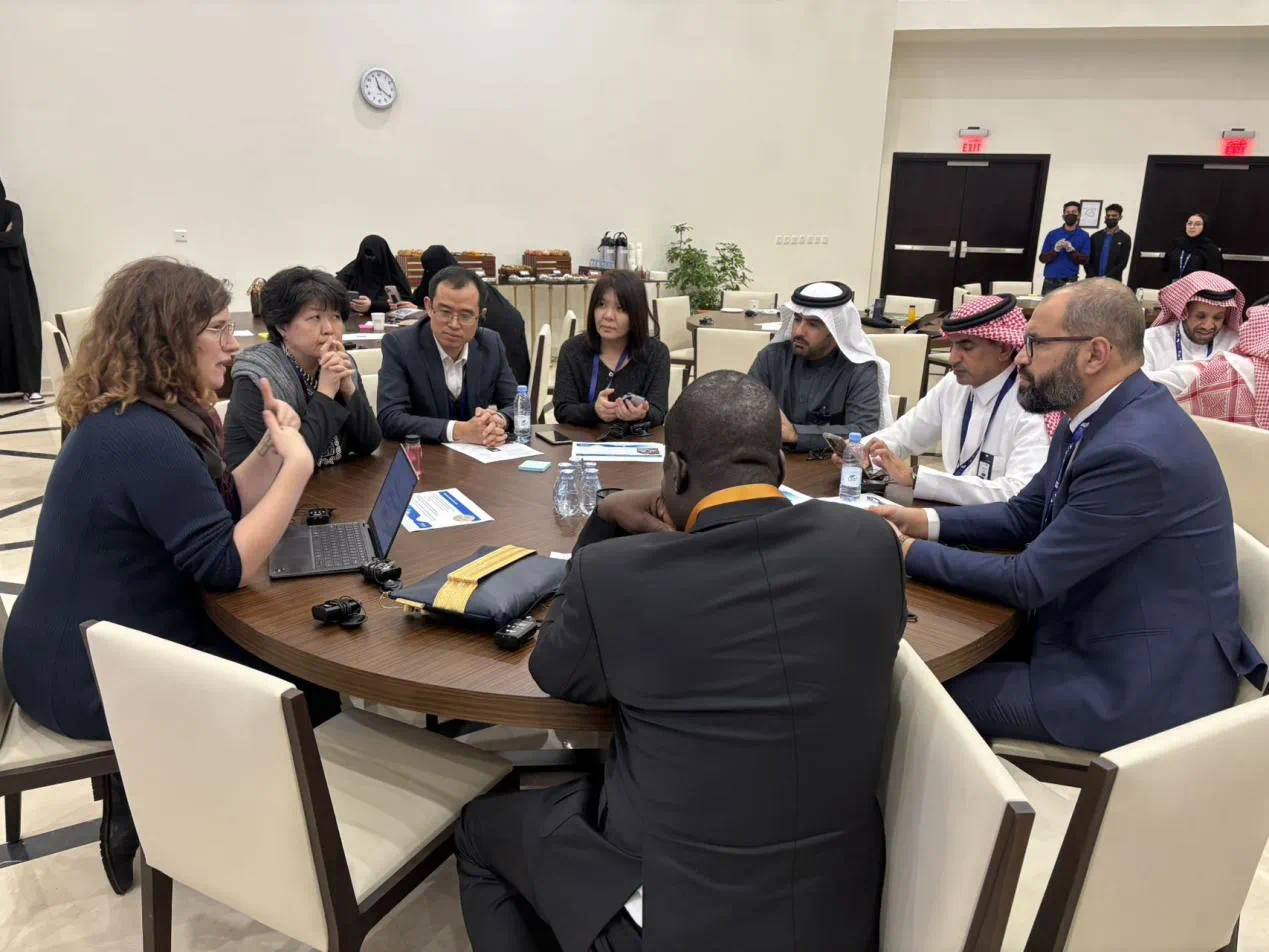East side of 7th Floor, No. 3663, North
Zhongshan Road, Shanghai, China, 200062
Tel: +86 21 6223 2322
www.smile.ecnu.edu.cn
The 6th International Conference on Learning Cities (ICLC 6), themed "Learning Cities at the Forefront of Climate Action," was held in Jubail Industrial City, Kingdom of Saudi Arabia, from December 3 to 5, 2024.

The Shanghai Municipal Institute for Lifelong Education (SMILE) team of East China Normal University(ECNU) unveiled significant research findings at this major international conference. The team members effectively communicated China's perspectives, engaged in international dialogues, and shared cutting-edge stories of China's education for sustainable development and climate change, substantially expanding China's influence in the global field of lifelong education.
1. Release of Significant Achievements
SMILE released its latest publications: "Climate Change Education: China in Action" (in both Chinese and English) and the English version of "Community Education for Sustainable Development: Observation on Shanghai’s Action II".
Professor Li Jiacheng, executive vice president of SMILE, released " Climate Change Education: China in Action." This publication results from a special project on "Climate Change Education" initiated by SMILE in 2023, incorporating the collective intelligence from three national seminars.
Against the backdrop of increasingly severe global climate change and the ongoing advancement of sustainable development education, SMILE established the National Research Alliance on Climate Change Education. Connecting member units across Beijing, Shanghai, Tianjin, Shenzhen, Guangzhou, Dongying, Changzhou, and Jinhua, this alliance demonstrated the lively practices of climate change education in China over the past year.
Officers from the UNESCO Institute for Lifelong Learning and representatives from various countries highly appreciated the practical significance of these achievements, noting that the achievements can strongly support and inspire current policies, practices, and theoretical research in global climate change education.
Over the past five years, with the support of the Shanghai Municipal Education Commission and ECNU, Shanghai ESD project team has maintained close and regular contact with the UNESCO Institute for Lifelong Learning and its Global Network of Learning Cities (GNLC). The team is dedicated to sharing experiences, improving community practices, fostering international cooperation and exchange, and fulfilling Shanghai's role as a global coordinating city for ESD. These efforts will ultimately serve as references for enhancing the quality of Shanghai's learning city initiatives. With the release of the "Shanghai ESD Community Action Plan (2024-2026)," the Shanghai ESD project has successfully entered its third phase of development.
2. Lead the Development of Guidance
During the conference, professor Li Jiacheng also chaired discussions on the draft of "Greening Communities Guidance" conducted by UNESCO's "Greening Communities Working Group."
UNESCO's collaborative initiative, the "Greening Education Partnership," encompasses over 1,200 organizations and aims to promote global cooperation on climate action through education.
The "Greening Curriculum Guidance" and the "Green School Quality Standard"are two key guiding documentsof the initiative.Another significant document isled by UNESCO's "Greening Communities Working Group", which seeks to drive green transformation in local communities through lifelong learning.
The primary goal of this working group is to assist local governmentsin establishing favorable policy environments that canempower local institutions, businesses, and civil society organizations to become catalysts for climate action. Since May 2024, at the invitation of UNESCO, professor Li Jiacheng and his team have participated as invited experts in the development process of the "Greening Communities Guidance."
3. Extensive Communication
During the conference, the team from SMILE, including associate professor Ma Lihua, chief researcher oneducationfor the elderly, professor and part-time researcher Zhang Yong, and Ms. Zou Wen, director of the Administrative Office, engaged in extensive academic exchanges and dialogues with domestic and international counterparts. These interactions helped solidify and deepen the collaborative relationships with UNESCO, as well as with institutions from Germany, France, South Korea, and other countries.

In the future, SMILE will continue to vigorously advance project development, accumulate high-quality research outcomes, and further expand the international influence of China's lifelong education research.